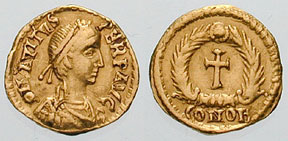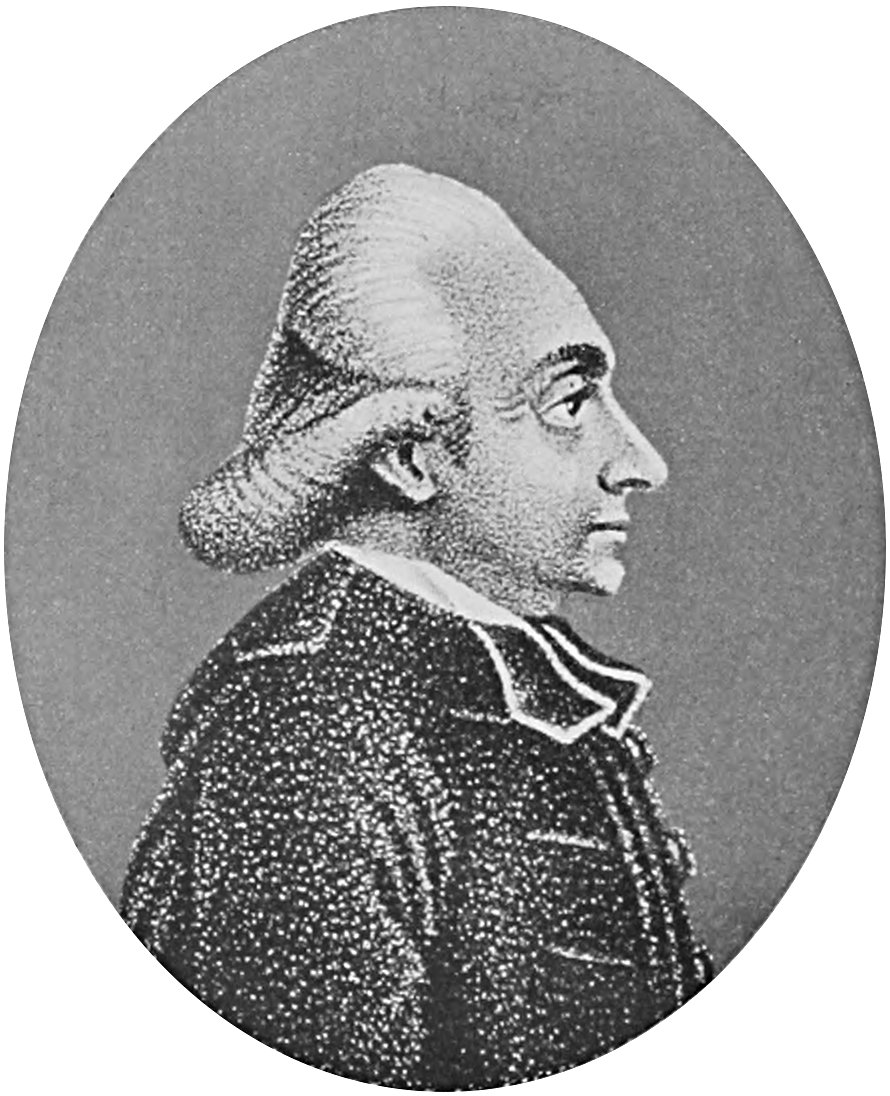|
Eparchius Avitus
Eparchius Avitus (c. 390 – 457) was Roman emperor of the West from July 455 to October 456. He was a senator of Gallic extraction and a high-ranking officer both in the civil and military administration, as well as Bishop of Piacenza. He opposed the reduction of the Western Roman Empire to Italy alone, both politically and from an administrative point of view. For this reason, as Emperor he introduced several Gallic senators in the Imperial administration; this policy, however, was opposed by the senatorial aristocracy and by the people of Rome, who had suffered from the sack of the city by the Vandals in 455. Avitus had a good relationship with the Visigoths, in particular with their king Theodoric II, who was a friend of his and who acclaimed Avitus Emperor. The possibility of a strong and useful alliance between the Visigoths and Romans faded, however, when Theodoric invaded Hispania at Avitus' behest, which rendered him unable to help Avitus against the rebel Roman gen ... [...More Info...] [...Related Items...] OR: [Wikipedia] [Google] [Baidu] |
Solidus (coin)
The ''solidus'' (Latin 'solid'; ''solidi'') or nomisma ( grc-gre, νόμισμα, ''nómisma'', 'coin') was a highly pure gold coin issued in the Late Roman Empire and Byzantine Empire. Constantine I, Constantine introduced the coin, and its weight of about 4.5 grams remained relatively constant for seven centuries. In the Byzantine Empire, the solidus or nomisma remained a highly pure gold coin until the 11th century, when several Byzantine Empire, Byzantine list of Byzantine emperors, emperors began to strike the coin with less and less gold. The nomisma was finally abolished by Alexius I in 1092, who replaced it with the hyperpyron, which also came to be known as a "bezant". The Byzantine solidus also inspired the originally slightly less pure Dinar (coin), dinar issued by the Muslim Caliphate. In Western Europe, the solidus was the main gold coin of commerce from late Roman times to Pepin the Short's Carolingian Renaissance#Carolingian currency, currency reform, wh ... [...More Info...] [...Related Items...] OR: [Wikipedia] [Google] [Baidu] |
Vandals
The Vandals were a Germanic peoples, Germanic people who first inhabited what is now southern Poland. They established Vandal Kingdom, Vandal kingdoms on the Iberian Peninsula, Mediterranean islands, and North Africa in the fifth century. The Vandals migrated to the area between the lower Oder and Vistula rivers in the second century BC and settled in Silesia from around 120 BC. They are associated with the Przeworsk culture and were possibly the same people as the Lugii. Expanding into Roman Dacia, Dacia during the Marcomannic Wars and to Pannonia during the Crisis of the Third Century, the Vandals were confined to Pannonia by the Goths around 330 AD, where they received permission to settle from Constantine the Great. Around 400, raids by the Huns from the east forced many Germanic tribes to migrate west into the territory of the Roman Empire and, fearing that they might be targeted next, the Vandals were also pushed westwards, Crossing of the Rhine, crossing the Rhine in ... [...More Info...] [...Related Items...] OR: [Wikipedia] [Google] [Baidu] |
Sack Of Rome (455)
The Sack of 455 was the third of four ancient sacks of Rome; it was conducted by the Vandals, who were then at war with the usurping Western Roman Emperor Petronius Maximus. Background In the 440s, the Vandal king Genseric and the Roman Emperor Valentinian III had betrothed their children, Huneric and Eudocia, to strengthen their alliance, reached in 442 with a peace treaty (the marriage was delayed as Eudocia was too young). In 455 Valentinian was killed, and Petronius Maximus rose to the throne. Petronius married Valentinian's widow, Licinia Eudoxia, and had his son Palladius marry Eudocia; in this way Petronius was to strengthen his bond with the Theodosian dynasty. Unhappy, however, with her husband's murder and the usurpation of Maximus, Eudoxia turned to aid from the Vandals to remove Maximus from the throne. The overture was favorably met, because Maximus' revolution was damaging to Genseric's ambitions. The king of the Vandals claimed that the broken betrothal betwee ... [...More Info...] [...Related Items...] OR: [Wikipedia] [Google] [Baidu] |
Roman Italy
Roman Italy (called in both the Latin and Italian languages referring to the Italian Peninsula) was the homeland of the ancient Romans and of the Roman empire. According to Roman mythology, Italy was the ancestral home promised by Jupiter to Aeneas of Troy and his descendants, Romulus and Remus, who were the founders of Rome. Aside from the legendary accounts, Rome was an Italic city-state that changed its form of government from Kingdom to Republic and then grew within the context of a peninsula dominated by the Gauls, Ligures, Veneti, Camunni and Histri in the North, the Etruscans, Latins, Falisci, Picentes and Umbri tribes (such as the Sabines) in the Centre, and the Iapygian tribes (such as the Messapians), the Oscan tribes (such as the Samnites) and Greek colonies in the South. The consolidation of Italy into a single entity occurred during the Roman expansion in the peninsula, when Rome formed a permanent association with most of the local tribes and cities. The st ... [...More Info...] [...Related Items...] OR: [Wikipedia] [Google] [Baidu] |
Roman Catholic Diocese Of Piacenza-Bobbio
Roman or Romans most often refers to: *Rome, the capital city of Italy *Ancient Rome, Roman civilization from 8th century BC to 5th century AD *Roman people, the people of ancient Rome *''Epistle to the Romans'', shortened to ''Romans'', a letter in the New Testament of the Christian Bible Roman or Romans may also refer to: Arts and entertainment Music * Romans (band), a Japanese pop group * ''Roman'' (album), by Sound Horizon, 2006 * ''Roman'' (EP), by Teen Top, 2011 *" Roman (My Dear Boy)", a 2004 single by Morning Musume Film and television *Film Roman, an American animation studio * ''Roman'' (film), a 2006 American suspense-horror film * ''Romans'' (2013 film), an Indian Malayalam comedy film * ''Romans'' (2017 film), a British drama film * ''The Romans'' (''Doctor Who''), a serial in British TV series People *Roman (given name), a given name, including a list of people and fictional characters *Roman (surname), including a list of people named Roman or Romans *Ῥωμα� ... [...More Info...] [...Related Items...] OR: [Wikipedia] [Google] [Baidu] |
Roman Gaul
Roman Gaul refers to GaulThe territory of Gaul roughly corresponds to modern-day France, Belgium and Luxembourg, and adjacient parts of the Netherlands, Switzerland and Germany. under provincial rule in the Roman Empire from the 1st century BC to the 5th century AD. History During the Republic The Roman Republic's influence began in southern Gaul. By the mid-2nd century BC, Rome was trading heavily with the Greek colony of Massalia, Massilia (modern Marseille) and entered into an alliance with them, by which it agreed to protect the town from local Gauls, including the nearby Aquitani and from sea-borne Carthaginians and other rivals, in exchange for land that it wanted in order to build a road to Hispania, to assist in troop movements to its provinces there. The Mediterranean settlements on the coast continued to be threatened by the powerful Gallic tribes to the north and in 122 BC the Roman general Gnaeus Domitius Ahenobarbus (consul 122 BC), Gnaeus Domitius Ahenoba ... [...More Info...] [...Related Items...] OR: [Wikipedia] [Google] [Baidu] |
Roman Senate
The Roman Senate ( la, Senātus Rōmānus) was a governing and advisory assembly in ancient Rome. It was one of the most enduring institutions in Roman history, being established in the first days of the city of Rome (traditionally founded in 753 BC). It survived the overthrow of the Roman monarchy in 509 BC; the fall of the Roman Republic in the 1st century BC; the division of the Roman Empire in AD 395; and the fall of the Western Roman Empire in 476; Justinian's attempted reconquest of the west in the 6th century, and lasted well into the Eastern Roman Empire's history. During the days of the Roman Kingdom, most of the time the Senate was little more than an advisory council to the king, but it also elected new Roman kings. The last king of Rome, Lucius Tarquinius Superbus, was overthrown following a coup d'état led by Lucius Junius Brutus, who founded the Roman Republic. During the early Republic, the Senate was politically weak, while the various executive magistr ... [...More Info...] [...Related Items...] OR: [Wikipedia] [Google] [Baidu] |
Anselmo Banduri
Anselmo Banduri (18 August 1671 or 1675 – 4 January 1743) was a Benedictine scholar, archaeologist and numismatologist from the Republic of Ragusa. Biography Banduri was born in Ragusa, Dalmatia as Matteo (Matija) Banduri, he joined the Benedictines at an early age and took the monk name Anselmo. He studied at Naples, and was eventually sent to Florence, then a flourishing center of higher studies. Here he made the acquaintance of the famous Benedictine scholar Bernard de Montfaucon, at the time traveling in Italy in search of manuscripts for his edition of the works of St. John Chrysostom. Banduri rendered him valuable services and in return was recommended to Cosimo III de' Medici, Grand Duke of Tuscany for the chair of ecclesiastical history in the University of Pavia. It was also suggested that the young Benedictine be sent to Paris for a period of preparation, and especially to acquire a sound critical sense. After a short sojourn at Rome, Banduri arrived at Paris in ... [...More Info...] [...Related Items...] OR: [Wikipedia] [Google] [Baidu] |
Joseph Hilarius Eckhel
Joseph Hilarius Eckhel (13 January 1737 – 16 May 1798) was an Austrian Jesuit priest and numismatist. Biography Eckhel was born at Enzersfeld, in Lower Austria. His father was farm-steward to Count Zinzendorf, and he received his early education at the Jesuits' College, Vienna, where at the age of fourteen he was admitted into the order. He devoted himself to antiquities and numismatics. After being engaged as professor of poetry and rhetoric, first at Steyr and afterwards at Vienna, he was appointed in 1772 keeper of the cabinet of coins at the Jesuits' College, and in the same year he went to Italy for the purpose of personal inspection and study of antiquities and coins. At Florence he was employed to arrange the collection of the grand duke of Tuscany; and the first-fruits of his study of this and other collections appeared in his ''Numi veteres anecdoti'', published in 1775. On the suppression of the Society of Jesus in 1773, Eckhel was appointed by the empress Maria Th ... [...More Info...] [...Related Items...] OR: [Wikipedia] [Google] [Baidu] |






